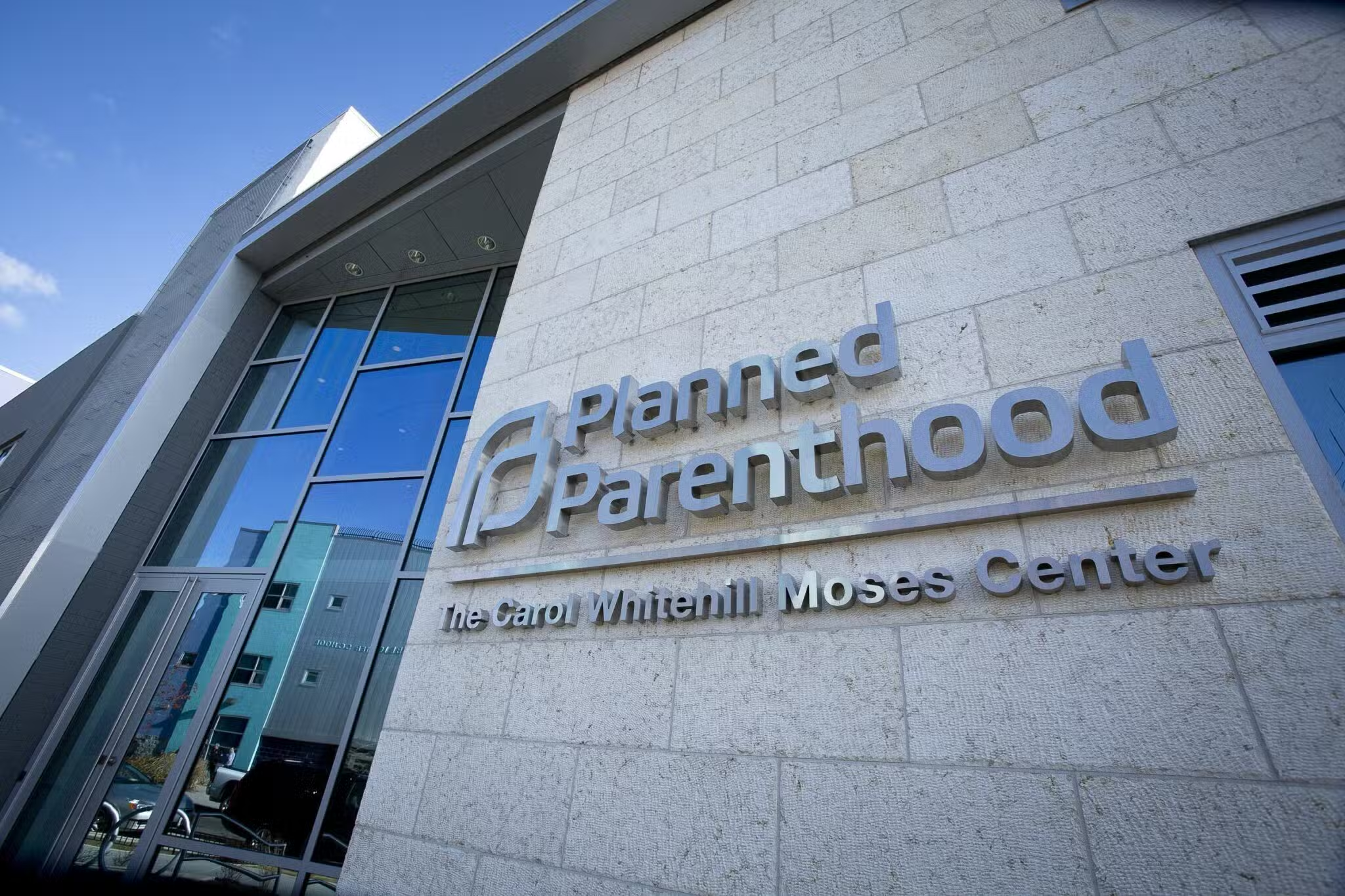Students, staff, and faculty at 24 Franciscan colleges and universities in the United States are growing through pilgrimages, classes, and community service.
Whether it’s veterans readjusting to civilian life, business students exploring ethical issues, graduates serving in ministries with friars or the Franciscan sisters who sponsor their university, or Protestants who want to grow in their faith, students at Franciscan colleges and universities are allowing the vision of Sts. Francis and Clare of Assisi to take deeper root in their lives.
St. Anthony Messenger spoke with five of the many schools that showcased programs during the June 5‚ 7 symposium of the Association of Franciscan Colleges and Universities (AFCU), held at the University of St. Francis in Joliet, Illinois. Check out our description of four more AFCU programs.
In addition, the 10-month Padua Program, designed to help Franciscan educational and other ministries deepen their Franciscan values, begins with a four-day conference at St. Bonaventure University (Allegany, New York) next month.
Of the 24 AFCU schools, 17 began as internal schools for women’s congregations, especially to train teachers and nurses. Those schools later accepted other women students and eventually became coed. The other seven began as men’s schools and later became coed.
St. Bonaventure University and Viterbo University
‘Rediscovering Their Souls’
When Richard Trietley, who served in the US Army for 22 years—including two planning missions and a combat deployment in Afghanistan in 2003—participated in the 2014 Veterans’ Franciscan Pilgrimage to Assisi and Rome, he did not expect to return “with a sense of peace and optimism for life after my military career. To spend such quality time with my brothers and sisters in arms was an experience that I will never forget.”
He notes that the pilgrimage encourages many veterans to open up with their peers about very difficult experiences. That sharing continued back at St. Bonaventure University (SBU) through regular meetings with other veterans who had made this pilgrimage, faculty/staff members, and nonmilitary students.
A holder of a graduate degree in education from Webster University and an undergraduate education degree from SBU, Trietley later served as Army ROTC commander there, director of safety and security, and finally vice president of student affairs. In July 2017, he began serving in the same capacity at Viterbo University in LaCrosse, Wisconsin. He introduced this veterans’ pilgrimage at SBU and continues promoting it at Viterbo.
Last May, five male and female veterans from St. Bonaventure University and 14 others (some retired) made the veterans’ pilgrimage. The Franciscan Pilgrimage Programs hosts “pilgrimage weekends” in Scottsdale (Arizona), Oceanside (California), and Tiffin (Ohio). Father Conrad Targonski, OFM, a retired Navy chaplain and now a campus minister at Viterbo University, was part of the team for that group—as he had been in 2013 for Trietley’s group. Father Conrad has now assisted with eight other veterans’ pilgrimages to Rome and Assisi.
He says that often the most moving events during the pilgrimage are the visit to the old cathedral, where Francis stripped off his clothes and returned them to his father, and the visit to Poggio Bustone, where Francis felt deeply forgiven.
“Some therapists,” says Father Conrad, “feel that post-traumatic stress disorder [PTSD] involves our bodies coming home before our souls do. This pilgrimage helps veterans rediscover their souls.”
Many veterans have been deeply moved by the parallels between Francis of Assisi’s military experiences and their own (for example, illness and PTSD). Encouraged by what Francis accomplished after his military service, they now see new possibilities for themselves. Trietley says, “It is now my goal to provide as many student veterans as possible with this life-changing opportunity.”
Dr. Bill Reese, a Vietnam veteran, Purple Heart recipient, and recently retired theology teacher at Viterbo, and Dr. Greg Masiello, a licensed psychotherapist, helped to lead the May 2018 pilgrimage. Dr. Paula Scraba, OSF, who is from a military family, works with student veterans at SBU.
viterbo.edu, sbu.edu, and FranciscanPilgrimages.com
University of St. Francis
Joliet, Illinois
Business as a Vocation
Dr. Anthony Zordan, a professor of accounting at the University of St. Francis in Joliet, Illinois, takes time during one accounting course to introduce students to the Pontifical Council for Justice and Peace’s 2012 document “Vocation of the Business Leader: A Reflection” (VBL). He references it in four other courses.
His own introduction to this dimension of accounting came through a conference at the University of Notre Dame and Michael Naughton and Robert Kennedy’s book, The Good That Business Does. Ironically, as the AFCU symposium was being held last June, Pope Francis was speaking with leaders of major oil companies about our shared moral responsibilities regarding climate change.
Jill Wagner, who took one of Dr. Zordan’s courses, says that she enjoyed reading VBL in class and discussing it with classmates. “This encouraged me always to be an honest, hardworking, and good employee and student.” Isabella Valentin adds that this document reminded her to stay true to her foundations and beliefs.
Amy Wegrzyn explains: “Using VBL was a nice way to see that even business has a part in God’s plan for us. I think it is important for future business students like myself to remember that our job in business is not only about making money but also providing our fellow brothers and sisters in Christ with useful goods and services to make their lives easier. Seeing our jobs as a vocation helps us see our purpose in life, which is to serve God and others through our unique talents and knowledge. In my case, that happens to be through the world of business.”
Fifteenth-century Franciscan Luca Pacioli probably could not agree more. Considered the father of accounting and the popularizer of double-entry bookkeeping, he advised accountants to begin their entries with “For the glory of God.” stfrancis.edu
Nuemann University
Franciscan Volunteer Ministry and the ‘No Risk, No Gain’ Programr
‘A Moment of Liberation’
In 2017 & 18, Franciscan Volunteer Ministry (FVM) offered six young people an opportunity to minister for 11 months with the Franciscan friars of Holy Name Province at St. Francis Inn and Ministries (Philadelphia) and St. Camillus Parish (Silver Spring, Maryland). A new site in Durham, North Carolina, has been added to the 2018-19 volunteer year.
St. Francis Inn serves breakfast three days a week and a sit-down meal 365 days a year for 200 to 400 people. Vol-unteers assist with cooking, preparing, serving, and, in some cases, delivering meals for those who cannot come to the inn. FVM participants also pick up donations, schedule daylong and weeklong volunteers, and coordinate all programming for children. Women volunteers assist at the inn’s women’s day center. The inn also has a clothing distribution center.
At St. Camillus Parish, FVM members assist at St. Francis International School. For the parish, they teach English as a second language, join in its youth ministry program, participate in local advocacy efforts, and help with the Meals on Wheels program.
The three core values of FVM members are intentional community, direct ministry, and expressed prayer. Volunteers are encouraged to eat together, pray together, and have fun together at least once a week. Each site has a friar supervisor.
For 10 months in 2017-18, FVM’s No Risk, No Gain program had three people working with the Franciscan Sisters of Philadelphia at Aquinas Center in that city, the Family Counseling Center of St. Paul’s in Wilmington, Delaware, and Red Hill Farm in Aston, Pennsylvania.
The No Risk, No Gain program, founded by the sisters in 2015, works with Franciscan Volunteer Ministry in presenting workshops at AFCU schools. The workshop can prepare for short-term service during spring break or a longer-term commitment. The AFCU’s June symposium in Joliet prompted several schools to request that workshop. Previous participants offered these comments:
“The way that discernment was explained and discussed was extremely helpful, deliberate, but still very lighthearted.”
“Franciscan service isn’t just about equality and justice.”
“It provides a moment of liberation, serving, and being served.”
“I appreciated being aware of what and why we are doing what we are doing—and the idea of equality vs. justice vs. liberation.”
“I appreciated talking about breaking down walls and seeing everyone as equals.”
Marian University
Indianapolis, Indiana
‘Taking My Relationship with Christ Seriously’
Only 39 percent of undergraduate students at Marian University in Indianapolis self-reported last September as Roman Catholic. To meet the needs of the remaining 61 percent, campus ministry there has created the Covenant Minister program that in the 2017-18 school year brought six volunteer ministers from local Christian churches to participate in ECHO (a Sunday evening worship service led by students and ministers), build relationships with students, and lead small-group discussion, and other spiritual activities. Non-Christian and unchurched students sometimes participate in other campus programs in which student leaders have been trained to welcome them where they are.
According to the Covenant Minister’s Code of Ethics, “Our major concern will be to aid the students in making informed choices concerning their religious lives, not to exclusively promote our own congregation, beliefs, or program.”
Student Willis Overton says: “The Covenant Minister program has had a huge impact on me in only the year that I have known them. The Covenant Ministers allowed me to feel comfortable to pursue my faith on campus. Whether meeting with Covenant Ministers individually or hearing them speak at ECHO, they have challenged and encouraged me to take my relationship with Christ seriously and make him the most important part of my life.”
Grace Neathery recalls: “I appreciate how the faith community at Marian recognized the need for reaching and supporting non-Catholic students. The people in ministry really care about the needs of the students. Even though my community of support wasn’t large, and I had to grow up a lot in my personal faith to be able to stand through some lonelier times, I always knew that I had people I could reach out to for help and support if I needed it. God worked in amazing ways in my life during my four years. I’m not the same Christian I was when I came, and I will always be thankful for the faithfulness of God and the people he brought into my life to continually support me.”
In summarizing his experience, Kessler Fisher says, “I was accepted just as I am and led to a faithful life where I have met God’s grace.”
Campus minister Theresa Roberts explains, “It brings me joy to know that, in addition to our Catholic worship and activities, students are being supported and strengthened in their Christian faith.” marian.edu
Padua Program
St. Bonaventure, New York
Deepening Franciscan Identity
When there were many Franciscan sisters, brothers, or priests working in a ministry, no one held the title mission integration officer or something similar. With the increasing popularity of the Franciscan vision and fewer vowed religious on ministry staffs, Franciscan religious communities have seen the need for a more formalized sharing of that vision with the laypeople who carry on those ministries with a dedication equal to that of those who founded them.
Between October 9 and 12 at St. Bonaventure University in New York, the 10-month Padua Program will begin with a conference to benefit those working to guarantee the Franciscan character of a particular ministry or those who may soon have that responsibility. Approximately eight online seminars will be offered before the concluding conference on the same campus (July 22–26, 2019). Individual mentors will work with participants and advise them on their project for this program. The Padua Program is a partnership between the Sisters of St. Francis of the Neumann Communities and SBU’s Franciscan Institute.
Sister Margaret Carney, OSF, STD, president emerita of SBU, coordinates the program and is one of its resident presenters. The other two are Dr. Pauline Albert, PhD, and Father David Couturier, OFM Cap, PhD, DMin. The program will include several offsite speakers.
Jeff Papia, of Hilbert College, has assisted in the design of this program and will coordinate its seminars and the mentors’ activities. Sister Norise Kaiser, OSF, represented the Neumann community in designing this program.
While she was teaching business and management at St. Edward’s University in Austin, Texas, Pauline Albert completed her doctorate in human and organizational systems (Fielding Graduate University) with a dissertation on the leadership of Sts. Francis and Clare of Assisi. She says: “I have long believed that the power of the Franciscan legacy can transform institutions if leaders are willing to engage in its powerful message and spirit. The Padua Program will allow us to help many leaders enter into that same conviction and the practices that flow from it.”
Sister Margaret explains: “The Padua Program is a response to an increasing need to provide consistent professional development that grounds our administrative leaders in the Franciscan inheritance of their institutions. It can also serve as the seedbed of a national network of committed laypeople whose daily work is dedicated to Franciscan principles but who have as yet no structural connections beyond their own sponsoring groups.”
Presentations at the October conference are organized around three themes:
Francis and Clare: Overview and Relevance Today;
The Franciscan Family and the Catholic Church;
The Mission Officer’s Role, Responsibilities, and Challenges.
stbonavenue.com/events/certificate-program-for-mission-officers
The Padua Program and the five others described here show that Franciscan values are alive and well at Franciscan colleges and universities in the United States.
AFCU Overview
The Association of Franciscan Colleges and Universities (AFCU) formally began on February 4, 1997, when 10 college presidents met at Washington Theological Union; its membership has since grown to 24 schools.
The AFCU supports Franciscan values in member institutions, provides a forum for dialogue, and fosters educational collaboration among its members.
Presidents of member schools meet annually, prior to the meeting of the Association of Catholic Colleges and Universities. The AFCU holds a three-day symposium in even-numbered years at a member school.
The AFCU also offers four online courses on Franciscan themes for faculty and staff at member schools. Many faculty and students have participated in Franciscan Pilgrimage Programs’ pilgrimages to Assisi, Rome, and other Franciscan sites.








